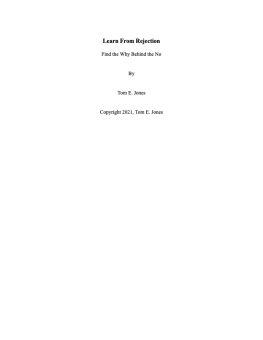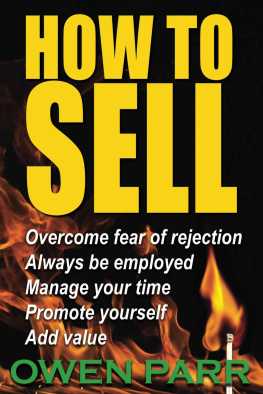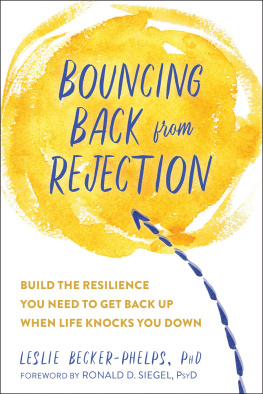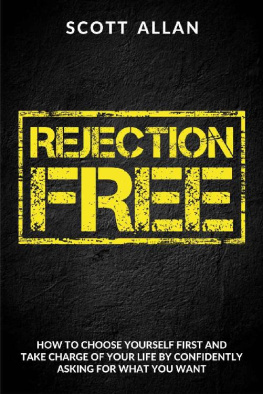The inspiration for this book stems from my teaching experience at seven universities, coupled with four decades as a management consultant and learning facilitator helping underserved students navigate the transition from learning to earning.
So, I was not surprised by the findings of the Barna-World Vision survey of 15,000, 18-35-year-olds from 25 countries who admitted to feelings of, loneliness and isolation. Only 32%, felt cared for. Sadly, 68% said, no one in their lives believed in them.
It is clear from these findings that a significant number of young people are experiencing the loss of belonging and the lack of support as they struggle to find their place in the world.
In addition to the subjects of these studies, research shows that people of all ages and all walks of life are experiencing rejection at an alarming pace. There's ample evidence in behavioral science literature of generational tendencies towards being adrift and feeling anxious about the future.
I am writing this book in the hope that the revelations it provides will help the readers not only learn from rejection, but also apply this newfound knowledge in their quest for a satisfying life.
Tom E Jones, Ed.D.
Revelation 1
Rejection Hurts but Its No Big Deal
Rejection hurts and the pain can linger for a lifetime. The fear of rejection has the power to control your life whenever the risk of being wrong is too high. So, whats the point of learning from rejection since it's out of your control and there's not much you can do about it anyway?
The answer is that learning from rejection will give you more control over your life. In addition to finding the reason for the rejection, youll also discover how to use it as a power tool.
Today's parents tend to raise their children in a negatively directed manner. In other words, they teach their children what not to do in an attempt to keep them safe. No is a powerful deterrent when shouted by an anxious parent trying to keep the child from harm. Although the use of no is meant as a loving confrontation, it can feel like rejection to the child.
As the child enters the education system rejection appears in new forms like failing a test, disappointing a teacher, being late for class, losing a best friend, not making the team, being reprimanded in class, being sent to the principals office: the list is endless.
Frustrated by the uncertainty, adolescents instinctively turned to their parents, teachers, and elders expecting support and guidance. Sometimes they received encouragement and good advice. Other times they were criticized or punished for getting it wrong.
Rejection continued after graduation in the form of gender discrimination, racial bias, skin color, ethnicity, language, culture, body type, social status, inexperience, job loss: the list goes on.
Given this rejection-filled background, its no wonder so many people in todays adversarial world find it hard to see themselves in a positive light when surrounded by so much negativity.
Yet, knowing how to respond proactively when faced with rejection is exactly what is needed in order for you to find the true purpose for your life.
So, perhaps its time to take charge of your career path rather than let rejection diminish your aspirations and dampen your enthusiasm for what the future holds in store.
If youre ready to define and direct your own future, then this sourcebook will help you get from where you are today to where you want to be tomorrow, and then empower you to stay on the pathway to a successful future
The Formula for Success
Successful people will tell you that their accomplishments have been the result of working hard, staying focused on what matters, and not letting rejection get in their way. They'll also admit that rejection is always present, but that it didnt stop them from trying, sometimes again and again.
Perceiving negative reactions from others as signs of your failure is natural. It's tempting to respond by limiting your efforts to avoid being hurt. But instead of letting rejection freeze your ambition, a more productive response would be to adapt the following formula for success:
Success requires risk.
Risk is the primary means of measuring the value of your commitment. You risk rejection whenever you commit yourself to a dream. Fortunately, the more risks you take, the more likely you are to succeed.
Risk escalates failure.
Look upon failure as part of the learning process. Examine the cause and try to avoid similar choices in the future. Adopt the no big deal philosophy, which means that when one thing doesnt work keep on trying until you find what does.
Failure builds confidence.
Feeling good about yourself and believing that what youre doing is right builds your confidence. Invest in your own worth. You may have faults and others will pick them out, but as a whole person no one is better than you.
Confidence raises self-esteem.
You feel good about yourself when others hold you in high regard, so dont waste time on negative people. Do what you believe makes sense. Dont compromise yourself or your values. Remember, your success is well earned and well deserved.
How you handle rejection can influence your ability to complete the success formula. Rejection and the learning that comes with it can be put to good use when you understand that its not about you, its about what you offer or what you represent that people are objecting to.
Behavioral Insights
- Self-esteem is enhanced proportionally to the difficulty of the task. The tougher it is to do, the better youre going to feel about yourself when you get it done.
- Painful experiences are not always negative. They often have many beneficial outcomes.
- You do things for a reason, sometimes subconsciously. Your behavior has an ego-payoff. Understand what it is, and improvement becomes easier.











